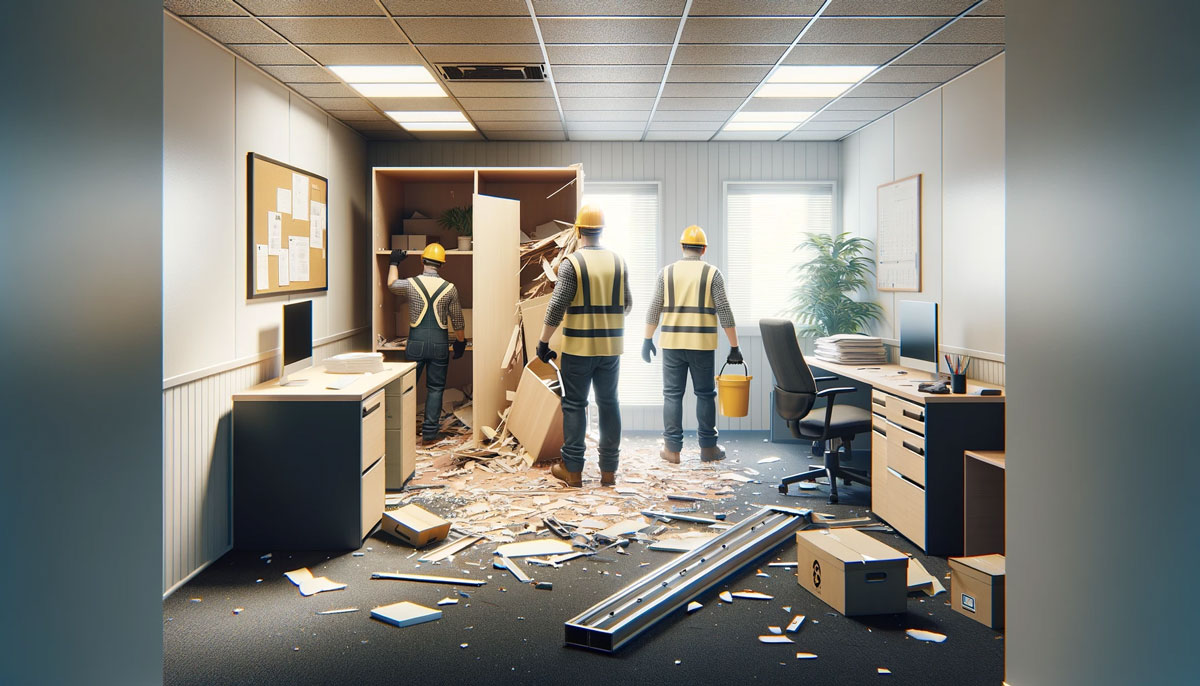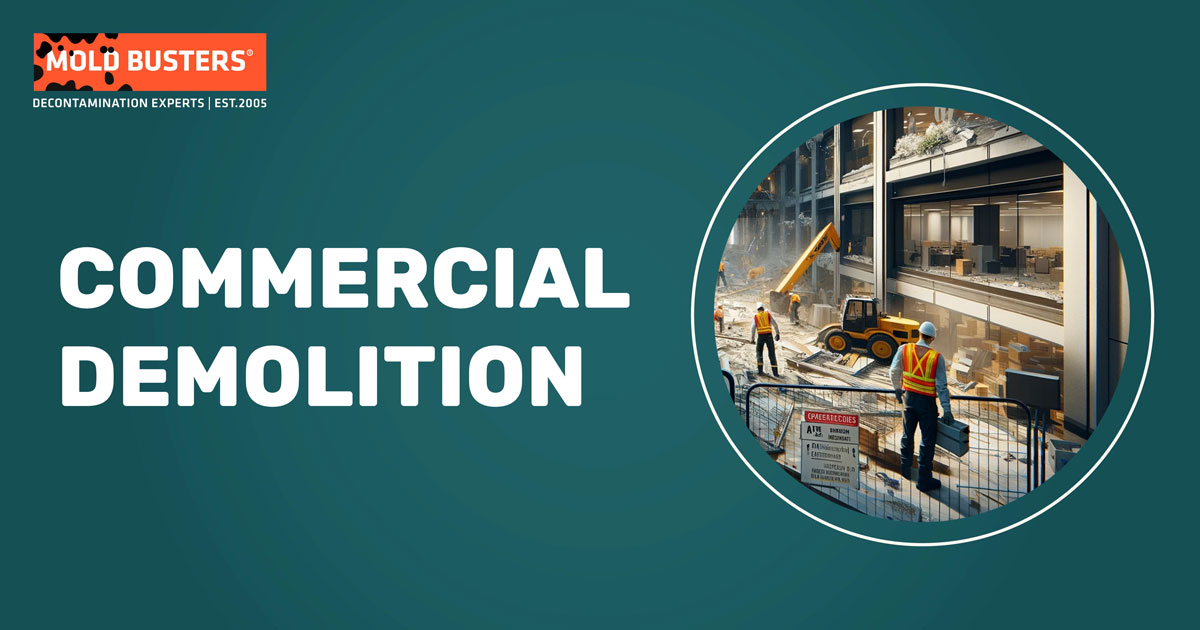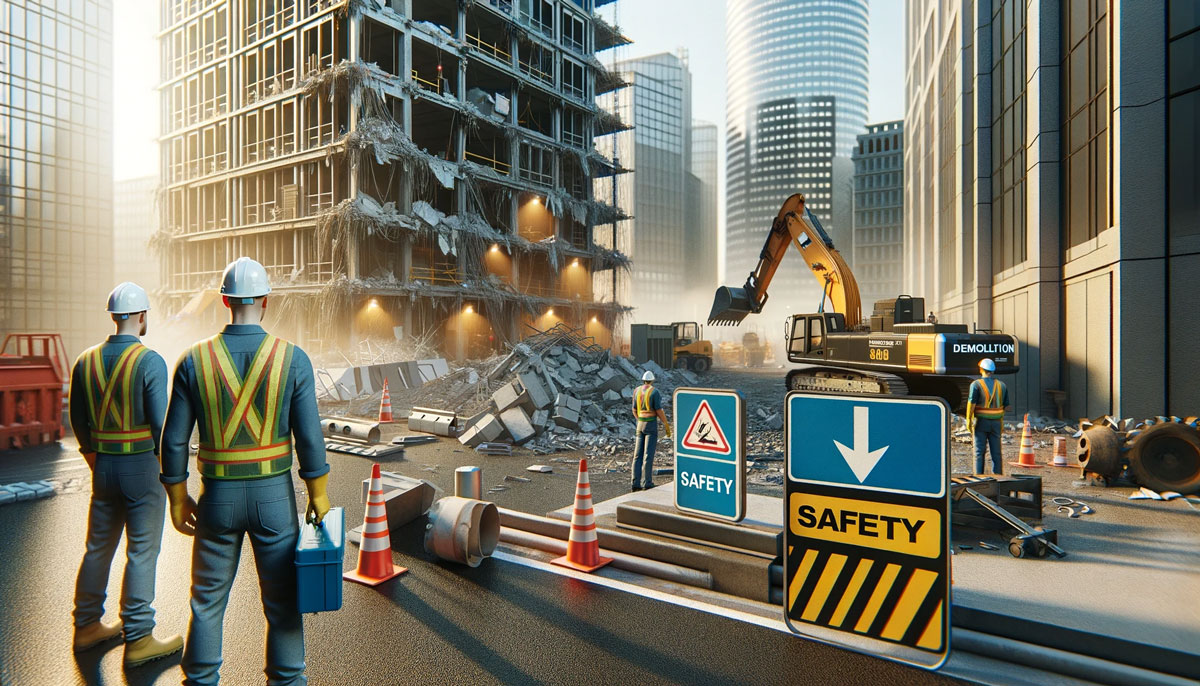Leading Commercial Demolition Services
Are you planning a major commercial property renovation or need to clear a site for new development in Montreal or Ottawa? Look no further. Our specialized commercial demolition services blend expertise, safety, and environmental responsibility to cater to your unique needs.
We understand the complexities of commercial demolition. From intricate downtown structures to expansive industrial complexes, our skilled team uses the latest techniques and equipment to ensure a smooth, efficient demolition process. Our commitment to safety and compliance with all regulations gives you peace of mind, knowing your project is in capable hands.
Ready to take the first step? Contact us today for a detailed consultation and discover how we can make your next demolition project a resounding success.


🔎 Request a Call
Why Choose Our Commercial Demolition Services?
- 1. Unmatched Safety Standards: Prioritizing safety above all, our team adheres to strict safety protocols, ensuring a risk-free environment for both workers and clients.
- 2. Expert Team with Specialized Training: Our skilled professionals are trained in the latest demolition techniques, equipped to handle complex projects with expertise and precision.
- 3. Advanced Demolition Equipment: Utilizing machinery and tools, we guarantee efficient and effective demolition, tailored to the specific needs of your project.
- 4. Comprehensive Project Management: From planning to execution, our meticulous project management ensures timely completion, budget adherence, and smooth operations.
- 5. Environmental Stewardship: We’re committed to sustainable practices, focusing on material recycling and responsible waste management to minimize environmental impact.
- 6. Regulatory Compliance: Navigating permits and regulations with ease, we ensure your project complies with all local and federal guidelines, avoiding any legal complications.
- 7. Transparent Pricing: With clear, upfront cost estimations, we ensure you have a complete understanding of the investment, with no hidden fees or surprises.

Ready to Transform Your Space Safely and Efficiently?
Don’t let demolition challenges hold you back. Partner with Mold Buster’s Commercial Demolition Services and watch your project unfold with precision and safety. Avail of our special promotional rates for a limited time. Embrace a hassle-free demolition process and see the difference expertise makes. Reserve your consultation slot now.
Contact Us NowClient Testimonials

Jordan T., Facility Manager, Ottawa
Choosing Mold Buster’s for our office demolition was the best decision we made. Their team was not only highly professional and efficient but also extremely cautious about safety. They managed the entire project flawlessly, from obtaining permits to the final cleanup. I was particularly impressed with their commitment to recycling and environmental care. Highly recommended for anyone needing commercial demolition services.

Sophia L., Project Coordinator, Montreal
Mold Buster’s Commercial Demolition Services exceeded our expectations. The level of detail and care they put into our project was remarkable. Their team navigated complex regulations with ease and completed the demolition ahead of schedule. The safety measures they implemented were top-notch, giving us complete peace of mind throughout the process. We’ll definitely be turning to them for future projects.
10% OFF
Schedule services online and save!
Available for home owners, landlords, businesses & property managers. If you are a tenant, please call to schedule your appointment.
YOUR PROMO CODE
MARCH10
Valid until March 31st, 2023
Role of Expert Contractors in Demolition

When it comes to commercial demolition, expert contractors play a vital role in ensuring a smooth and successful project. These professionals bring their experience, knowledge, and specialized skills to the table, making them indispensable assets throughout the demolition process.
Expert contractors have an in-depth understanding of various building codes, regulations, and safety protocols related to commercial properties. They can navigate the complexities of obtaining necessary permits and permissions required for demolitions. By adhering to these legal requirements, they ensure that the demolition is carried out lawfully and without any potential legal or regulatory complications.
Moreover, expert contractors possess the technical expertise to handle different types of commercial structures and materials. Whether it’s a high-rise office building or an industrial warehouse, they know how to plan and execute the demolition in a manner that minimizes risks while maximizing efficiency. From using specialized tools and equipment to implementing safe practices, their expertise helps prevent accidents, structural damage, and other potential hazards during the demolition process.
Expert contractors also bring organizational and project management skills to the table. They coordinate with various stakeholders involved in the project, such as architects, engineers, waste management agencies, and local authorities. Their ability to effectively communicate and collaborate ensures that everyone is on the same page throughout the project timeline. This coordination helps streamline operations and ensures that the commercial demolition progresses smoothly from start to finish.
Choosing the Right Commercial Demolition Contractor
Selecting the right commercial demolition contractor is crucial for your building projects as it can make all the difference between success and unexpected complications. Here are a few key factors to consider when making this important decision.
| Feature | Description | Benefit to Client |
|---|---|---|
| Safety Standards | Adherence to strict safety protocols and regulations | Ensures a risk-free environment for both workers and clients |
| Specialized Training | Team skilled in the latest demolition techniques | Expert handling of complex projects with precision |
| Equipment Quality | Machinery and tools used | Efficient and effective demolition tailored to project needs |
| Project Management | Comprehensive planning and execution strategy | Timely completion and smooth operations, within budget |
| Environmental Care | Focus on recycling and responsible waste management | Minimizes environmental impact, promoting sustainability |
| Compliance | Navigating permits and regulatory guidelines | Ensures legal compliance, avoiding complications |
| Pricing Transparency | Clear, upfront cost estimations | Provides understanding of investment, no hidden fees |
| Service Locations | Services offered in Montreal, Ottawa, and beyond | Local expertise and understanding of regional requirements |
| Demolition Variety | Handling properties from downtown structures to industrial complexes | Flexibility and capability to manage diverse demolition needs |
| Client Testimonials | Positive feedback from past clients | Demonstrates reliability and quality of service |
- First and foremost, ensure that the contractor you choose has the necessary licenses, certifications, and insurance. These credentials demonstrate their professionalism and adherence to industry standards. Licensed contractors have met specific criteria and can be relied upon for their expertise.
- Furthermore, look for a commercial demolition contractor with a solid track record of successful projects and satisfied clients. Check their portfolio or request references to gain insight into their previous work. Reading reviews and testimonials from other customers can provide valuable information regarding their reliability, timeliness, and quality of work.
- Consider the scope of services offered by the contractor. Do they specialize in the type of demolition you require? Are they equipped to handle the size and complexity of your project? Assessing their capabilities in relation to your specific needs is essential for a smooth collaboration.
- Lastly, don’t underestimate the importance of communication and transparency. A good contractor will take the time to understand your project requirements, address any concerns or questions you may have, and keep you informed throughout the demolition process. Clear communication ensures that everyone is on the same page and helps build trust between you and the contractor.
By carefully considering these factors , you can choose a commercial demolition contractor that meets your project’s needs while ensuring professionalism, reliability, and successful execution.
- The global demolition services market size was estimated at USD 22.04 billion in 2020 and is expected to reach USD 23.52 billion in 2021.
- According to a report, the United States held a prominent market share of over 85% in North America’s commercial demolition segment in 2020.
- RJS Associates suggested that on average, the industry saw roughly a 6% annual growth rate from 2016-2021, demonstrating the steady demand for commercial demolition services.
The Demolition Process

Commercial demolition is a complex and carefully planned process that involves tearing down structures to make way for new construction or redevelopment projects. This process requires the expertise and precision of professional contractors who specialize in commercial demolition services. Let’s take a closer look at the key steps involved in the commercial demolition process.
- Firstly, a thorough assessment of the site is conducted to understand the scope of the project and identify any potential hazards or challenges. This includes evaluating the structural integrity of the building, assessing environmental concerns, and determining the necessary permits and regulations that need to be followed.
- Next, a detailed demolition plan is created, outlining the sequence of actions, safety measures, equipment needed, and waste management procedures. This plan ensures that the demolition is carried out efficiently and safely, minimizing risks to workers and neighboring structures.
- The actual demolition begins with the removal of any hazardous materials such as asbestos or lead-based paint. Special precautions are taken during this phase to ensure proper containment and disposal in compliance with environmental regulations.
- Once hazardous materials are cleared, the interior demolition takes place. This involves removing partitions, fixtures, electrical systems, plumbing, and other non-structural elements. Controlled techniques like selective dismantling might be employed to preserve certain components or salvage valuable materials for recycling purposes.
- After completing the interior demolition, attention turns to the exterior portion of the structure. This stage generally involves heavy machinery like excavators or wrecking balls to bring down walls, columns, and other load-bearing elements. Careful consideration is given to minimize dust generation and noise during this phase.
- Finally, debris removal and site cleanup are carried out meticulously to ensure safe conditions for construction or future use of the area. Proper disposal methods are followed for waste materials according to local regulations.
Now that we have an overview of the commercial demolition process let’s explore in more detail the stages involved from interior to exterior demolition.
From Interior to Exterior: Stages in Demolition
Commercial demolition progresses through various stages, moving from the interior of the structure to its exterior. Each stage requires careful planning and execution to ensure the safety and efficiency of the entire process.
- The initial stage involves clearing out the interior space, removing non-structural components such as walls, flooring, and fixtures. This allows for better access to the core structure of the building and facilitates subsequent demolition tasks.
- Once the interior is stripped down, the focus shifts to the structural elements. Load-bearing walls, beams, and columns are methodically dismantled using specialized equipment and techniques. Safety measures are paramount during this phase to prevent any unexpected collapse or structural instability.
- As the demolition moves towards the exterior, exterior walls and facades are carefully brought down layer by layer. Heavy machinery and controlled demolition methods are employed to systematically demolish these components while maintaining safety protocols.
- Finally, attention is given to site clearance and waste management. Debris is removed promptly and disposed of properly to ensure a clean working environment for future construction or development projects.
Pre-Demolition Checklist
Before embarking on a commercial demolition project, it’s crucial to have a comprehensive pre-demolition checklist in place. This checklist serves as a roadmap, ensuring that all necessary preparations are completed before the actual demolition begins. By following this checklist, you can minimize potential risks, streamline the process, and ensure a successful demolition project.
- One of the first steps in the pre-demolition checklist is conducting a thorough assessment of the building and its surroundings. This assessment helps identify any potential hazards or structural weaknesses that may impact the demolition process. It also allows for proper planning and strategizing to mitigate any potential risks.
- Another essential aspect of the checklist is obtaining the required permits and approvals from local authorities. Demolition projects often require specific permits and adherence to local regulations to ensure safety and compliance. Failing to secure the necessary permits can result in legal complications and delays in the project.
- Furthermore, it is crucial to disconnect all utilities, such as electricity, water, and gas supply lines, before commencing with the demolition. Properly shutting off these utilities ensures both the safety of workers on-site and efficient execution of the project. This step may involve coordinating with utility providers to ensure a smooth transition.
- Additionally, asbestos and other hazardous materials must be adequately addressed before initiating the demolition process. Hiring professionals to conduct thorough inspections for hazardous substances helps ensure compliance with environmental regulations and safeguards workers’ health.
Now that we have highlighted some key items on the pre-demolition checklist let’s explore essential preparations for a smooth demolition process.
Essential Preparations for a Smooth Demolition Process
Preparing for a smooth commercial demolition process involves several critical considerations. One vital aspect is establishing effective communication channels between all parties involved—this includes contractors, subcontractors, engineers, architects, as well as keeping stakeholders informed throughout various stages.
- In terms of logistics, having a detailed timeline and project schedule is crucial. This includes setting clear objectives, deadlines, and milestones for different phases of the demolition. A well-structured timeline not only helps keep the project on track but also allows for efficient coordination of tasks among team members.
- Furthermore, safety measures must be prioritized throughout the entire demolition process. This involves implementing appropriate safety protocols, providing necessary protective gear to workers, and ensuring adherence to local health and safety regulations. Regular inspections, ongoing safety training, and contingency plans are integral components of a successful demolition project.
- Additionally, waste management strategies should be established beforehand to handle debris and other materials generated during the demolition. Proper disposal methods that comply with environmental guidelines should be followed to minimize any negative impact on the surrounding ecosystem. For instance, recycling materials from the demolition can not only reduce waste but also contribute to sustainability efforts.
- Lastly, having a skilled and experienced team of contractors who specialize in commercial demolitions is vital. Their expertise and knowledge ensure that the demolition process is carried out efficiently, safely, and within legal parameters.
With these essential preparations in place, you can embark on your commercial demolition project with confidence, knowing that you have laid the groundwork for success.
What Happens After The Demolition
The completion of a commercial demolition project marks the end of one phase and the beginning of another. Once the building has been successfully demolished, several important steps need to be taken to ensure a smooth transition to the next stage of the construction process.
- First and foremost, a thorough assessment of the site is conducted to evaluate its condition after demolition and identify any potential hazards or issues that need to be addressed. This assessment helps in determining if additional clean-up or remediation is necessary before proceeding with the next steps. It may involve inspecting the surrounding area for debris, hazardous materials, or any remnants that could impact future construction work.
- Next, post-demolition planning takes place, which involves coordinating with architects and engineers to design and develop the blueprint for the new structure. This step is crucial as it lays the foundation for what comes next, including acquiring necessary permits and approvals.
Post-Demolition Clean-up and Debris Management
An essential aspect of completing a commercial demolition project is post-demolition clean-up and debris management. This process ensures that the site is clear of all debris, ensuring a safe and organized environment for future construction activities.
- Depending on the size and complexity of the project, debris management can vary. In some cases, heavy machinery may be used to remove large pieces of debris such as concrete slabs or steel beams. Special equipment like excavators, bulldozers, loaders, and trucks are employed to expedite this process efficiently.
- Post-demolition clean-up involves removing not just structural debris but also other elements like dust, nails, screws, insulation materials, and small fragments from the site. Thorough cleaning is necessary to ready the space for further construction work.
- To manage debris effectively, sorting it into recyclable and non-recyclable categories is crucial. Recycling materials like metal, wood, and concrete can minimize waste and promote sustainability. Proper disposal of non-recyclable waste is equally important to maintain environmental standards.
- Once the clean-up and debris management are completed, the site is prepared for the next phase of construction, whether it involves rebuilding or starting anew. This stage requires strategic planning, coordination with contractors, and adherence to safety protocols to ensure a successful project outcome.
Now that we have explored the steps involved after commercial demolition, including post-demolition clean-up and debris management, let’s shift our focus to another critical aspect – environmental considerations during the demolition process.
- Post-demolition clean-up and debris management are essential to ensure a safe and organized environment for future construction activities. This process involves the removal of structural debris, as well as dust, nails, screws, insulation materials, and small fragments from the site. Sorting the debris into recyclable and non-recyclable categories promotes sustainability, while proper disposal of non-recyclable waste maintains environmental standards. Once the clean-up is complete, the site can be prepared for the next phase of construction. Strategic planning, coordination with contractors, and adherence to safety protocols are crucial for a successful project outcome. Additionally, considering environmental aspects during the demolition process is critical in promoting sustainability and minimizing negative impacts on the surrounding ecosystem.
👷 Related Services
Our most popular demolition services include:
🔎 Request a Free Consultation
FAQ
Our commercial demolition services cater to a wide variety of buildings, including office properties, retail spaces, and industrial sites. Whether it’s a renovation requiring partial deconstruction or complete demolition of a building, our experienced staff is equipped to handle projects of any scale, ensuring the safety and efficiency of each job.
Sustainability is a core aspect of our approach. We focus on deconstruction methods that allow for the maximum reuse and recycling of materials. Our team carefully segregates materials like wood, metal, and concrete during demolition jobs, sending them to appropriate recycling centers rather than landfills, contributing to environmental conservation in the Ottawa and Montreal areas.
Choosing our demolition company offers several benefits, especially for projects in locations like Ottawa or Montreal. We are well-versed in local zoning regulations and standards, ensuring compliance and smooth operation. Our familiarity with these areas allows us to efficiently manage logistics and site-specific challenges, saving time and money for our clients.
For complex jobs like implosion or excavation, our approach is meticulous. Take, for example, a recent project in the Ottawa where we used controlled implosion for a multi-story building. Our team conducted thorough site assessments, collaborated with sub-trades for preparatory works, and coordinated with crane operators for precision. Such projects are managed with utmost attention to detail, prioritizing safety and compliance at every step.
Safety is our top priority. We adhere to rigorous safety protocols, including regular training for our staff and strict adherence to guidelines. We conduct detailed risk assessments for every project, implement safety barriers on sites, and use appropriate personal protective equipment. Our commitment to safety ensures a secure environment for our workers and minimizes risk for all stakeholders.

Contact Us
Have more questions or need assistance? We’re here to help!: